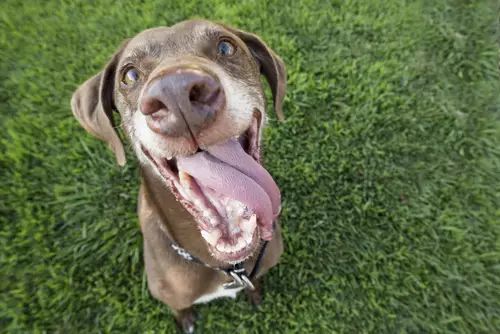As dog lovers, we often find ourselves grappling with some of the perplexing behaviors exhibited by our beloved companions. One of the most alarming and, to some extent, vile of these behaviors is coprophagy, or the act of consuming feces. For those who have a dog that engages in this distressing habit, the experience can scarcely be described as anything other than bewildering. Why do dogs partake in such a distasteful act? While it can evoke feelings of embarrassment and concern among pet owners, pet owners need to understand that this behavior, though unpleasant, is far from uncommon.
Research indicates that a significant number of dogs partake in this behavior. A study conducted by researchers at the University of California, Davis, revealed that approximately 16% of dog owners reported that their pets indulge in feces consumption. This statistic may provide a modicum of comfort, reassuring owners that they are not alone in facing this peculiar dilemma. Furthermore, the phenomenon is not limited to a specific breed, age, or behavioral profile; it transcends these boundaries, leading to a broader conversation around its implications for canine health and welfare.
Digging Deeper: The Evolutionary Roots of Coprophagy
The alarming habit of dogs eating feces can be traced back to their ancestors. Dr. Benjamin Hart, who led the UC Davis research, suggests that many behaviors exhibited by modern dogs can be attributed to their lineage. Wolves, the forebears of domestic dogs, would often consume feces as a means of survival. The instinct is believed to stem from the necessity to keep their living environments clean from potential health hazards. Such measures are vital to prevent the spread of parasites that could threaten their well-being.
Interestingly, the study found that most dogs preferred feces that was no more than two days old. This suggests an innate drive to avoid ingesting feces that could be dangerous, showcasing a survival instinct honed over generations. Dogs’ proclivity for fresh feces may mirror their wild relatives’ cautious approach to waste in their natural habitats.
The Many Motivations Behind the Behavior
While evolutionary factors play a significant role in canine coprophagy, the reasons behind this behavior are multifaceted. As some studies indicate, boredom and stress can be significant triggers. Dogs are highly social creatures that require mental stimulation and exercise. A lack of engagement can drive them to explore their surroundings in ways that may seem bizarre to their human companions. Additionally, some dogs may seek attention through this behavior, prompting an often negative reaction from owners, which inadvertently reinforces the habit.
Another angle to consider is the health aspect. Some veterinarians propose that nutrient deficiencies or inadequate diets may lead dogs to consume feces to source missing vitamins and minerals. These hypotheses warrant discussion with a qualified veterinarian to explore potential dietary adjustments and supplements that could mitigate poop-eating tendencies.
The Risks: Is Your Dog in Danger?
Though eating feces may seem unpleasant, it is essential to understand the potential health implications associated with this behavior. The American Kennel Club alerts pet owners to the hazards of dogs consuming feces from other animal species, particularly livestock such as cows, horses, and sheep. These droppings may harbor harmful bacteria and parasites that can pose serious health risks to your dog.
Conversely, if a dog consumes its feces, the risks are somewhat minimized, as it has already digested the food contained within. Nevertheless, cat feces entice many dogs due to their appealing aroma, reminiscent of cat food. Veterinary experts remind dog owners that although ingesting feces does not guarantee illness, the risks are significant enough to warrant concern.
Monitoring for signs of illness, such as vomiting, lethargy, and changes in appetite or bowel movements, is prudent if your dog regularly engages in coprophagy. Should you notice any abnormalities, consulting with a veterinarian is highly recommended.
Breaking the Cycle: Effective Strategies to Prevent Coprophagy
If your dog is among the 16% who indulge in this unusual behavior, it is crucial not to let feelings of embarrassment cloud your judgment. There are tangible and effective strategies to discourage this habit within your canine companion. Start by discussing your concerns with a veterinarian, who may recommend dietary adjustments, including supplementary vitamins or increased fiber intake, to diminish the appeal of feces.
Beyond dietary changes, behavioral interventions may also be key. Regular walks, interactive play, and mental stimulation through puzzles and training exercises can alleviate boredom and channel your dog’s energy into more productive actions. Moreover, training your dog to “leave it” when they encounter feces can be a powerful tool in reducing the frequency of this habit.
By understanding the complexities of coprophagy and working diligently with your dog, you can create a healthier living environment for your furry friend and cultivate a more harmonious relationship free from the anxiety that this behavior often brings. Embrace the journey, knowing that you and your dog can overcome this challenge together.

